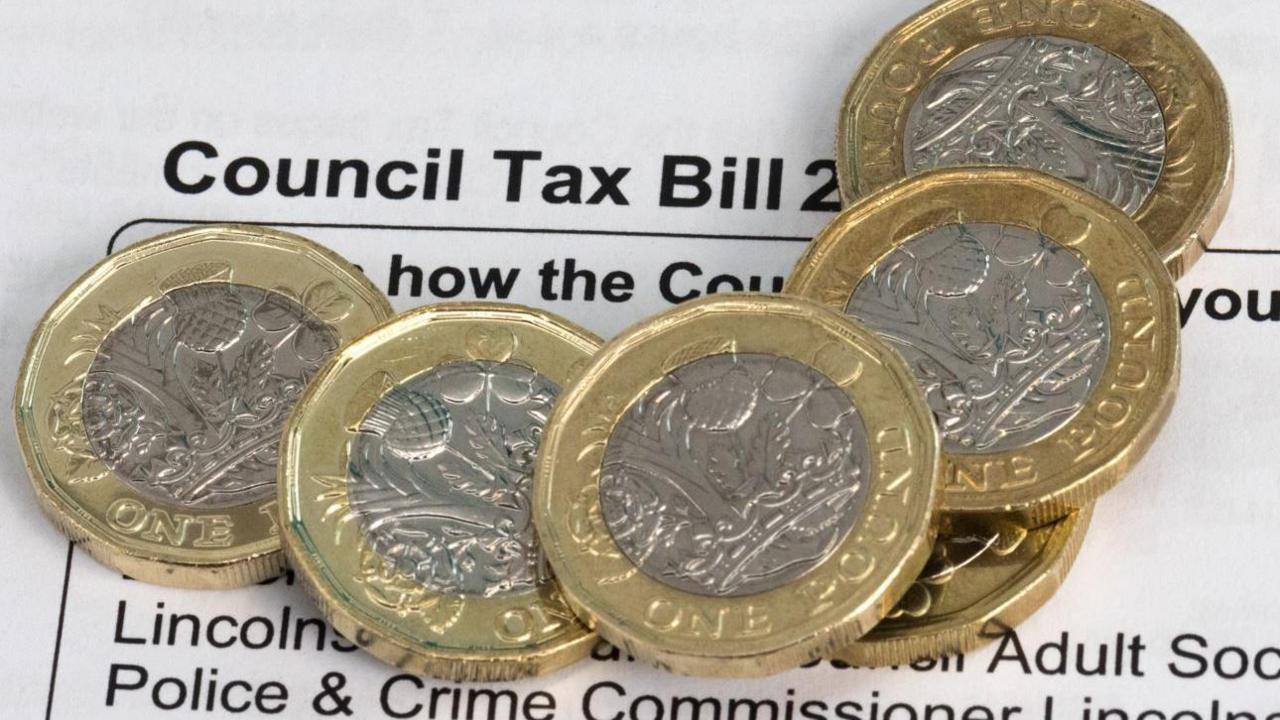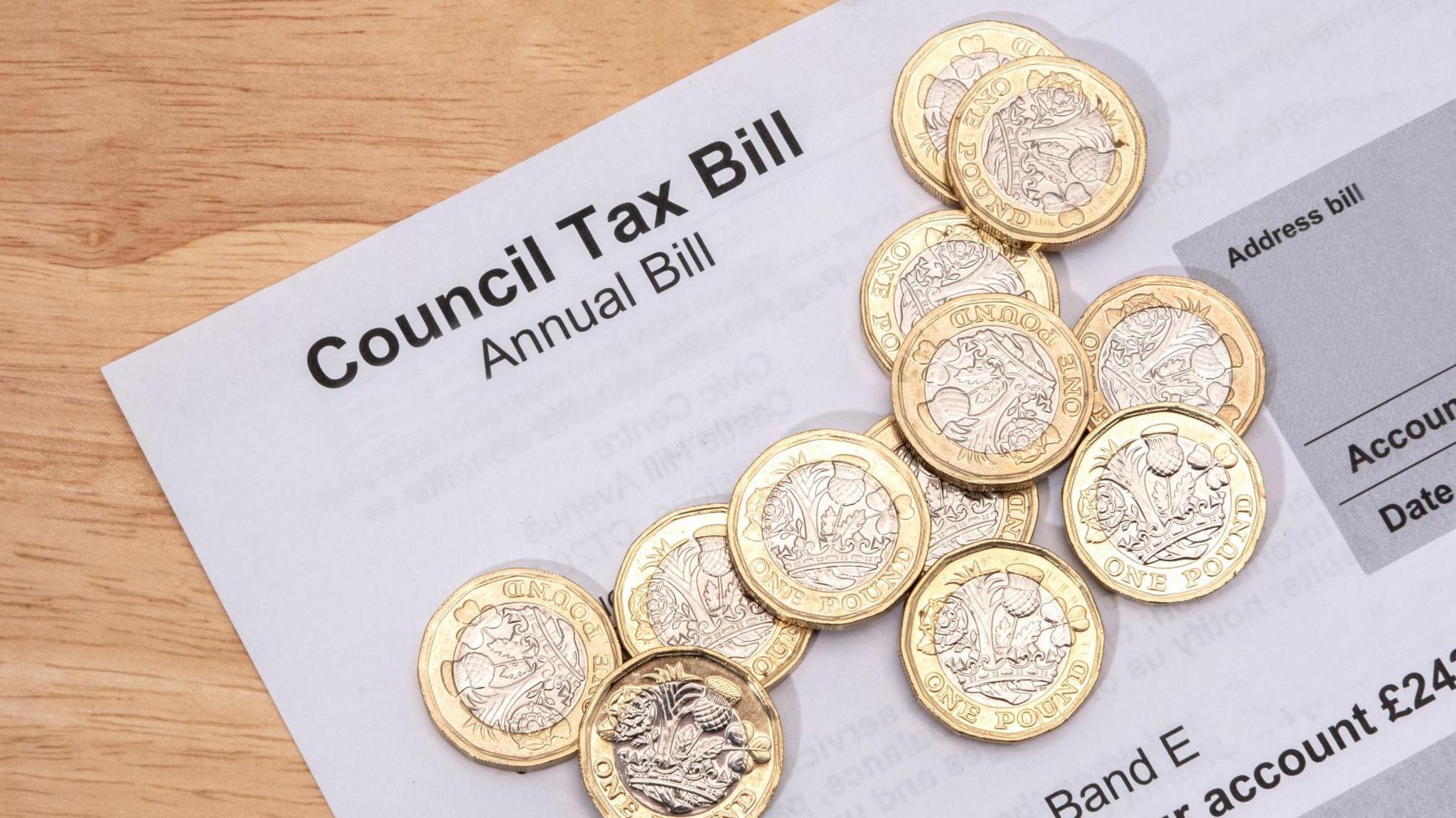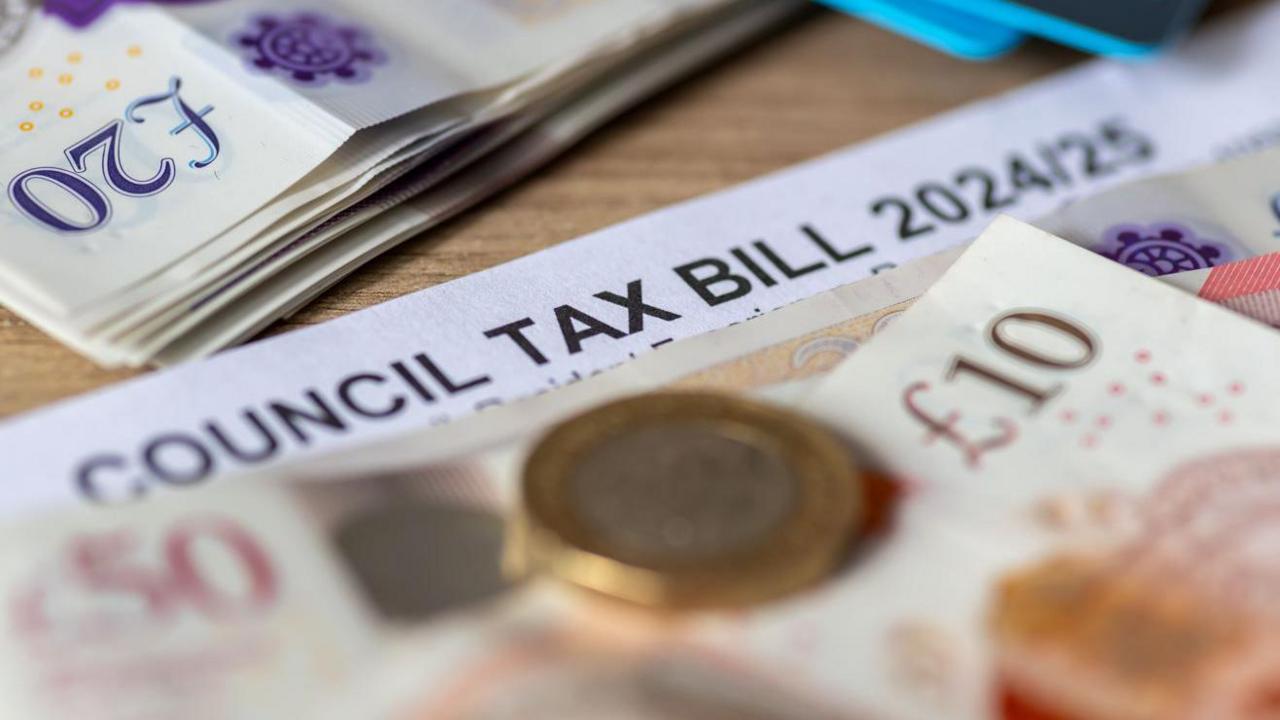Council tax bills to increase by 2.99% next year

Councillors approved the 2.99% rise in a meeting on Friday
- Published
Lincolnshire County Council has agreed to raise council tax by 2.99% in the next year.
Councillors approved the budget for 2025/26 during a meeting on Friday.
The increase means council tax for a Band D property will rise from £1,578.69 to £1,625.85 per year.
Council leader Martin Hill said the authority was "conscious of the economic circumstances" and acknowledged "households are feeling the squeeze".
Hill said the government would have liked the authority to increase council tax bills by a higher rate of 4.99%.
"The economy is stalling a bit and inflation is rising so we do think, while we can, we ought to try and help out a bit with their council tax bills," Hill added.
The move is expected to generate £11.7m in additional income, according to the Local Democracy Reporting Service.
Independent councillor Phil Dilks questioned why the Conservative party had not chosen to increase council tax by the maximum amount.
Hinting toward county elections set to take place on 1 May, he asked: "Has the campaigning already started?"
The budget proposals, external include putting an extra £1m into the flood defence system after the county was hit by floods last year, taking the total amount to £7m.
"As well as working to invest to prevent flooding in the first place, I believe creating an Emergency Flood Fund from £1m of existing reserves could make a positive difference to those worst hit by flooding," said Dilks.
Labour Group leader Karen Lee added: "Flooding can be disruptive and upsetting whether it hits a person's home or business.
"We want to be sure that when flooding happens, Lincolnshire people get the fast and effective help they deserve."
'Financial shift'
Hill also acknowledged in the meeting that local authorities were "struggling with rising costs" and a "national economy failing to meet growth targets".
He highlighted a "financial shift", with more money from central government being given to urban authorities, leaving rural communities to "suffer even more".
Birmingham was allowed to raise its council tax by 7.5% after also receiving £40m in additional funding through the government's new recovery grant.
Meanwhile, Lincolnshire County Council faced losing £9m in funding after central government chose to remove the Rural Service Delivery Grant.
Listen to highlights from Lincolnshire on BBC Sounds, watch the latest episode of Look North or tell us about a story you think we should be covering here, external.
Related topics
- Published18 February

- Published21 February

- Published21 February
